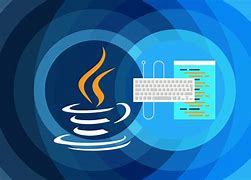How to Become a Java Developer in India
Table of Contents
1. Understanding the Basics of Java
How to Become a Java Developer in India, Before you embark on your journey to becoming a Java developer, it’s essential to grasp the fundamentals. Java is an object-oriented, high-level programming language known for its platform independence, making it widely used in various applications and industries.
2. Educational Requirements
To start a career as a Java developer, you don’t necessarily need a formal education, but it can certainly be beneficial. You may want to think about the following educational options:
2.1 Pursuing a Bachelor’s Degree
Many Java developers begin their journey by pursuing a bachelor’s degree in computer science or a related field. This provides a strong foundation in programming and computer science principles.
2.2 Enrolling in Coding Bootcamps
Coding bootcamps are intensive, short-term programs that focus on teaching practical coding skills. They are a popular choice for those who want to enter the tech industry quickly.
2.3 Self-learning and Online Courses
Self-learning is a viable option for those who prefer a flexible schedule. There are plenty of online courses and tutorials available, covering everything from Java basics to advanced topics.
3. Choose the Right Path
Once you’ve acquired a basic understanding of Java, it’s time to choose your path in becoming a Java developer.
3.1 Mastering Core Java Concepts
Start by mastering the core Java concepts, including variables, data types, loops, and conditional statements. These are the building blocks of Java programming.
3.2 Data Structures and Algorithms
Understanding data structures and algorithms is crucial for efficient coding. It will help you solve complex problems and write optimized code.
4. Java Frameworks
Java offers several frameworks that simplify application development. Some popular ones include:
4.1 Spring Framework
Spring is widely used for building enterprise-level Java applications. It provides a comprehensive infrastructure for application development.
4.2 Hibernate
Database interactions in Java applications are made simpler by the object-relational mapping (ORM) framework known as Hibernate.
4.3 Apache Struts
Java developers can create web applications using the Struts framework. It follows the Model-View-Controller (MVC) architecture.
5. Building Real-World Projects
Practical experience is invaluable. Start working on real-world projects to apply your knowledge and build a portfolio.
6. Version Control with Git
Developers can keep track of changes to their code using the version control system Git. It’s a vital skill in collaborative coding environments.
7. Databases and SQL
Learn about databases and SQL, as they are integral to many Java applications.
8. Web Development with Java
Explore web development using Java, including Servlets, JavaServer Pages (JSP), and RESTful Web Services.
9. Test-Driven Development (TDD)
Testing before coding (TDD) is a development method. Your code’s reliability is ensured.
10. Continuous Integration and Deployment (CI/CD)
CI/CD practices automate the testing and deployment of your code, making development more efficient.
11. Building a Portfolio
Create a portfolio showcasing your projects and skills. It’s an essential tool for impressing potential employers.
12. Networking and Building Connections
Attend tech meetups, conferences, and online forums to network with other developers and industry professionals.
13. Job Search and Interview Preparation
Finally, prepare for job interviews by practicing coding challenges and brushing up on your technical and soft skills.
In conclusion, becoming a Java developer in India requires dedication, continuous learning, and practical experience. By following this guide and staying committed to your goals, you can embark on a successful career in the world of Java development.
Frequently Asked Questions (FAQ)
What is the typical salary of Java developer in India?
The average salary for a Java developer in India varies based on experience and location. Entry-level positions typically start at around ₹3-6 lakhs per annum, while experienced developers can earn ₹10 lakhs or more.
To work as a Java developer, do I need a degree?
While having a degree can be beneficial, it is not required. Many successful Java developers have acquired their skills through coding bootcamps and self-learning.
Which Java framework should I learn first?
It’s advisable to start with the Spring Framework as it is widely used in the industry and offers a broad range of features.
How long does it take to become a skilled Java developer?
The timeline varies from person to person, but it typically takes several months to a year of dedicated learning and practice to become proficient.
Are there job opportunities for Java developers in India?
Yes, India has a thriving IT industry with numerous job opportunities for Java developers in various sectors, including software development, finance, and e-commerce.




